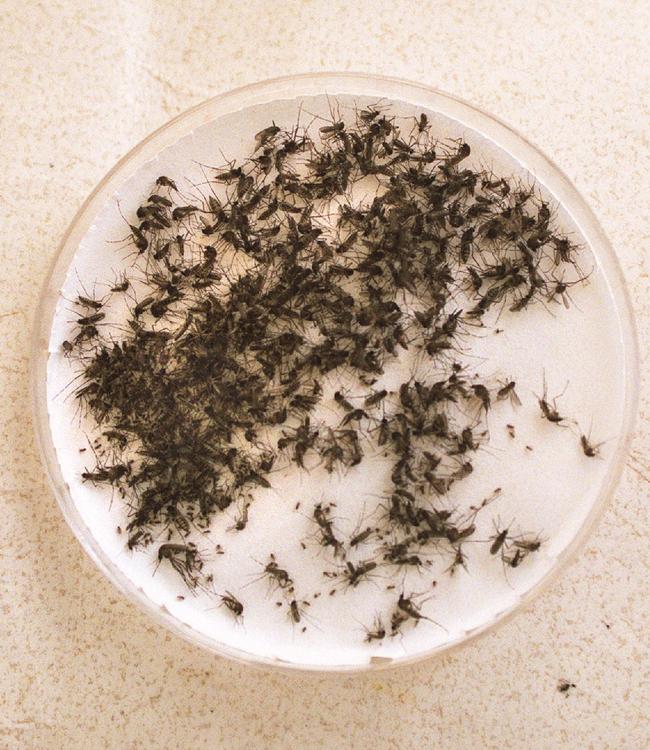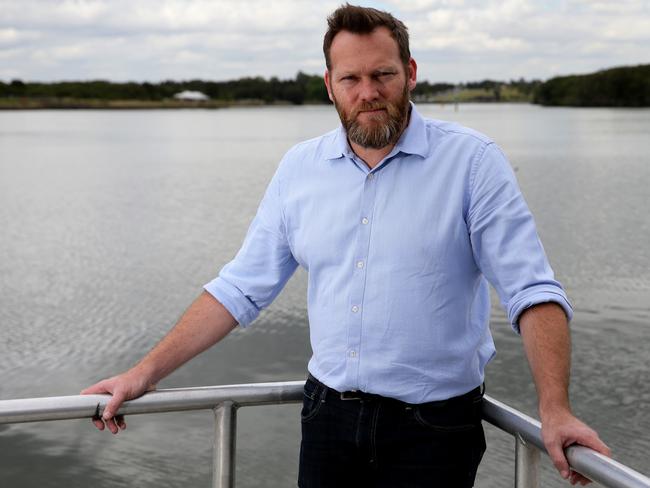Mosquitoes thriving along Parramatta River
Parramatta River is teeming with more breeding mosquitoes this year after early rainfall triggered hatches in mangroves.
Parramatta River is teeming with more breeding mosquitoes this year after early rainfall triggered hatches in mangroves.
Saltmarsh mosquitoes (aedes vigilax) are thriving at Duck River in Silverwater and Newington — a symptom NSW Health Pathology medical entomologist Cameron Webb blames on the wetlands’ poor health.
“The mosquitoes that cause most of the problems are in the mangrove areas and saltmarsh areas,’’ he said.
“They breed exclusively in this salty, tidal wetlands.
“Not only are there a lot of those wetlands but over the last 150 years there’s been a lot of change to those wetlands.”

Dr Webb said changes such as installation of sea walls had enhanced mosquitoes’ breeding habits.
Saltmarsh mosquitoes travel up to 5km from wetlands but only 200m in backyards.
Ryde Council has received several inquiries about the mosquitoes along Parramatta River foreshore.
But a crackdown on the bugs has started under Sydney Olympic Park Authority’s management program that eliminates up to 95 per cent of mosquitoes after aerial spraying.

The method applies bacterial larvicide that is safe for humans, pets and fauna.
The authority sprayed the 48ha Newington Nature Reserve on November 9 and is scheduled around tidal patterns. The next session will be November 27.
Dr Webb said while Parramatta River was a hotspot for saltmarsh mosquitoes, they did not spread diseases.
“Saltmarsh is one of the worst mosquitoes to spread Ross River,’’ he said.
“However, you see virtually no diseases along the river. For Ross River to spread, you need wildlife. They need to pick it up a kangaroo or wallabies and there’s no wildlife along the Parramatta River.”
IN OTHER NEWS
Dr Webb said Ross River — which could cause fever, rash, fatigue and muscle aches — was more likely to be spread along the Georges River, Hawkesbury and foothills of the Blue Mountains.
“We’re very lucky in Sydney, mosquitoes don’t spread anything like dengue or zika virus,” Dr Webb said.
Sydneysiders can expect the mosquitoes to subside by mid autumn.
“Even though we tend to have warmer days in April, we tend to have colder nights so around Anzac Day mosquitoes start go away,’’ Dr Webb said.
Sydney Olympic Park Authority has also liaised with Parramatta Council to to spray wetlands from helicopters to reduce wrigglers.
A council spokeswoman said it had received one concern since September 1 saying there was an increased number of mosquitoes in the Rydalmere area near the river.
The council is involved in an arbovirus surveillance and mosquito monitoring program with Westmead Hospital, NSW Health and Sydney University.
CONTROL MOZZIES
● Eliminate any source of standing water around the home to control container breeding
mosquitoes
● Limit outdoor activities at dawn and dusk
● Cover up and applying insect repellent when outdoors
● Ensure windows and doors are fitted with insect screens
● Use insecticidal sprays to control mosquitoes indoors
● Newington Nature Reserve Wetland will be sprayed
November 26 or 27, December 10 or 11, December 26 or 27, January 23 or 24, February 21 or 22, March 21 or 22, April 21 or 22


